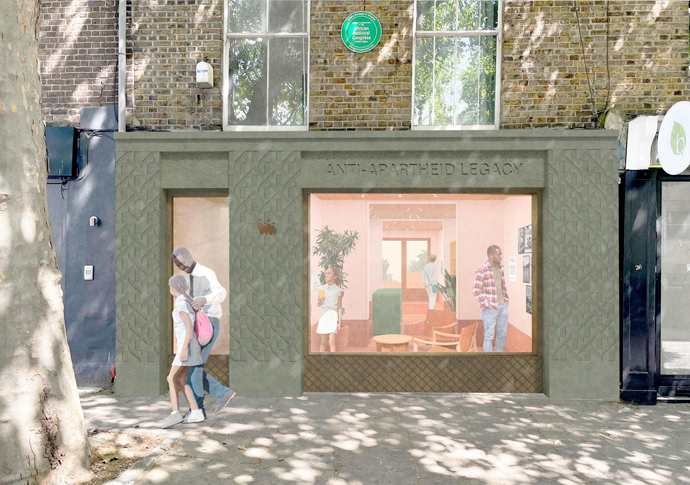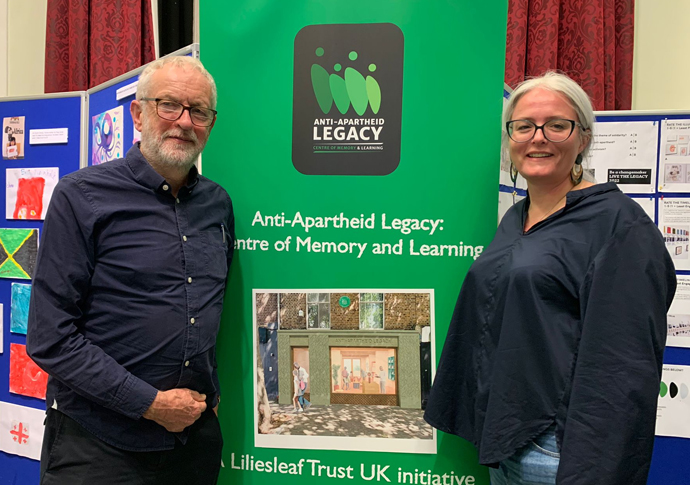Celebrating the anti-apartheid heroes
Thirty years after regime was ended, history centre will open in former London base of ANC
Friday, 1st September 2023 — By Izzy Rowley

How the centre will look
THE first permanent anti-apartheid history centre is set to open next year.
A new wave of funding for Anti-Apartheid Legacy: Centre for Memory and Learning has come from a £1.2million National Lottery Heritage Fund grant, meaning that organisers can finally set an opening date of September 2024.
“Next year, 2024, is really significant because it marks 30 years since the end of apartheid and 30 years since the first democratic elections under universal suffrage in South Africa that saw Nelson Mandela elected,” said Caroline Kamana, the project director of the centre.
“It’s a perfect time to open the centre, celebrate that, and celebrate the extraordinary contributions from people all over the world, and people from the borough of Islington who took action against apartheid and helped many of the exiles that came to the borough.”
The new museum will be at 28 Penton Street in Angel, which was the London headquarters of the African National Congress (ANC) between 1978 and 1994. The building is now run-down, but was once a hive of campaign planning and anti-apartheid activism.

MP Jeremy Corbyn with Caroline Kamana, project director
“It was bombed in 1982. That was a calculated terrorist attack on British soil by the apartheid regime. No one was arrested for it at the time but several years later nine South African security operatives were given amnesty for telling the truth about their part in it,” said Ms Kamana.
“Thankfully no one was killed, but the intention was to destroy that nerve centre of communications, and to send a message to the network of people involved in the movement.”
The national heritage grant, along with other funders including the Mayor of London’s Good Growth Fund, has given the centre the financial push it needs to set an opening date, and Ms Kamana says it couldn’t have come at a better time.
She said the anti-apartheid movement is more than history, “…it enables people to understand the now. The struggle against apartheid was an anti-racist, equalities-driven mission, and apartheid was a systemically racist system.
“Hundreds of thousands of people came together across society – student unions, trade unions, church groups, people of different faiths, there were lawyers against apartheid, local authorities against apartheid, and Islington was one of the first strongly anti-apartheid local authorities.
“We hope that the centre brings people hope, to learn from the past and see that you can change the future.”
As well as inspiring activism, Ms Kamana says she hopes the centre will build community.
“I’ve had five emails today from people who want to volunteer, or are part of the southern African diaspora who want to connect with others from the same background, people with an activist path who might want to share signs, leaflets or oral histories,” she added.